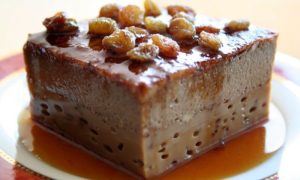ISLAMABAD: A recent study indicates that consuming foods rich in flavanols, such as green tea, apples, and berries, may help reverse memory loss, especially in individuals with inadequate flavanol intake. The research highlights how insufficient amounts of flavanols can impair mental functions and contribute to memory decline.
Flavanols, a type of flavonoid, can be found in various sources including leafy vegetables, blackcurrants, onions, apples, berries, cherries, peaches, soybeans, citrus foods, tea, chocolate, lettuce, peppers, grapes, and even wine.
According to the study published in the journal PNAS, participants aged 60 and above who already consumed sufficient amounts of flavanols did not experience any additional cognitive benefits. However, those with a deficiency in flavanols who replenished their levels noticed an average memory improvement of 16% within a year.
Dr. Adam Brickman, a neuropsychology professor at Columbia University, stated, “The improvement among study participants with low-flavanol diets was substantial and raises the possibility of using flavanol-rich diets or supplements to improve cognitive function in older adults.”
The findings support the notion that the aging brain requires specific nutrients, similar to how a developing brain in children requires specific nutrients for proper growth, as suggested by researchers.
In the study, participants were instructed to consume a daily flavanol supplement pill, equivalent to approximately 500mg of flavanols as recommended for adults, or a placebo pill for three years. Memory assessments and dietary surveys were conducted periodically over the course of the study.
Foods that Improve Memory
The results revealed that participants who took flavanol supplements after a year of poor diet, which initially showed lower levels of flavanols, experienced an average memory score increase of 10.5% compared to those who took the placebo pill, and 16% compared to their baseline memory. This improvement was sustained for at least two more years.
Professor Aedin Cassidy, Chair in Nutrition & Preventative Medicine at Queen’s University Belfast, commented on the research, stating, “This is a really important study showing that a dose of flavonoids called flavanols, present in tea, cocoa, apples, and berries, is key for improving memory in the aging brain.”
Cassidy added, “Supplementing with flavanols reversed the lower memory in the participants who had low diet quality after one year of intake, and this was sustained throughout the three-year intervention period.”
While the study did not definitively conclude that low dietary intake of flavanols alone causes poor memory performance due to the lack of an experiment where flavanols were removed to observe the effects on memory, the researchers plan to conduct clinical trials. These trials will involve restoring flavanol levels in adults with severe flavanol deficiency to assess the potential improvements in memory.

























